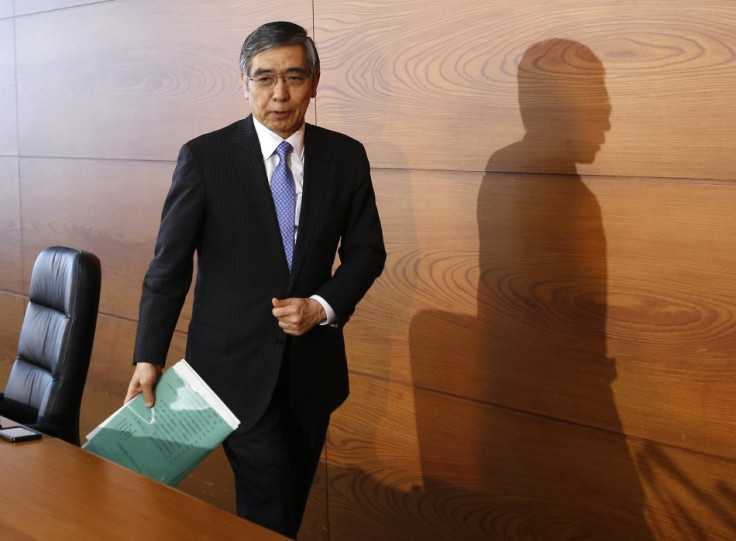BoJ's Kuroda Supports Sales Tax Hike in Japan as Abe Rethinks Strategy

Bank of Japan Governor Haruhiko Kuroda confirmed that the country's planned increase in sales tax rate would not dent its economic recovery amid rising concerns that Prime Minister Shinzo Abe would delay or water down the move due to possible negative impacts.
"A two-step sales tax increase won't give major damage to growth in Japan's economy," Kuroda said in a speech today in Tokyo.
Kuroda, appointed with the strong support of Abe earlier this year, said the tax rate hike would ensure fiscal discipline.
"The BOJ is purchasing debt for price stability. If people think this is financing government spending, long-term yields could raise, rendering monetary policy less effective," he said.
Kuroda believes that any jump in concern about the sustainability of Japan's public debt burden - the world's largest - would add pressure on the government debt market.
In the first step, Japan plans to raise sales tax rates to 8% from the current 5% in April 2014 in order to stabilize long-term yields of government bonds and repair public finances. Subsequently, the rate will be raised to 10% in 2015.
However, Abe is seriously rethinking the plan due to concerns that the move will rattle financial markets and affect investor confidence.
While Finance Minister Taro Aso was of the opinion that the government needs to proceed with an increase, Abe advisers including Koichi Hamada have expressed caution.
Abe has reportedly ordered a study of alternatives to the plan due to concerns that a rise in bond yields could undermine efforts by the government and central bank to escape deflation.
Progress of Monetary Easing Measures
The central bank's expanded quantitative easing measures launched in April are making progress towards moving the country out 15 years of deflation, according to Kuroda. He noted that Japan is likely to attain its targeted 2% inflation rate as Japan's economic growth exceeds its potential.
The BOJ chief said the easing measures have resulted in an improvement in financial markets and corporate finance. Furthermore, they bettered public's sentiments and expectations about business prospects and economy and bolstered economic activity and prices.
Overseas economies posed the biggest risk to this outlook, with Europe's debt crisis unresolved and China shifting its economy away from excessive fixed-asset investment, he said.
Even with a tax rate hike, the BOJ expects real gross domestic product to expand 1.3% in the fiscal year starting in April, according to the median estimate of the nine policy board members released earlier this month.
© Copyright IBTimes 2025. All rights reserved.






















